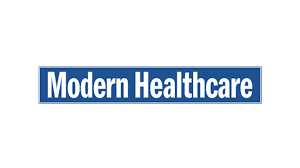
Editor's Note A new medical training institute in Charlotte, North Carolina, is positioning itself as a major national destination for robotic and minimally invasive surgery education, Axios Charlotte October 29 reports. The North American headquarters of IRCAD (Institut de Recherche contre les Cancers de l’Appareil Digestif, or Research Institute Against…

Editor's Note The Food and Drug Administration (FDA) has announced three new recalls between October 14 and 16 that may affect OR inventory and perioperative workflows across multiple service lines. Each recall targets a commonly used product in surgical or imaging settings, prompting leaders to review supplies and coordinate with…

Editor's Note The Food and Drug Administration (FDA) on October 10 classified a cybersecurity correction involving Abiomed’s Automated Impella Controller as a Class I recall, the most serious type, according to the FDA Medical Device Recalls and Early Alerts database. While devices are not being removed from clinical settings, the…

Editor's Note The Food and Drug Administration (FDA) has expanded its early alert recall program to include all medical devices, speeding up how quickly the public learns about high-risk safety issues, Modern Healthcare October 9 reports. The initiative allows the FDA to post early alerts within days of manufacturers notifying…

The centralization of medical device processing to one facility is becoming more prevalent. Centralizing sterile processing activities reduces expenses while concentrating expertise. However, this also introduces new concerns. When sterile processing is located within the same building where instrumentation is used, transport occurs over smooth floors in a controlled environment…

Editor's Note Artificial intelligence (AI) is driving medical technology from reactive tools to adaptive learning systems, Medical Device Network October 6 reports. Shweta Maniar, Google Cloud’s global director of healthcare and life sciences, said that advances in agentic AI are enabling medtech devices to anticipate patient needs, simplify operations, and…

Editor's Note Beginning October 1, the Food and Drug Administration (FDA) is mandating that all De Novo classification requests be submitted electronically using its eSTAR system, according to a final rule and guidance issued by the agency. As detailed in the September 30 release, the shift marks a procedural change…

Editor's Note The US Department of Commerce has initiated national security investigations that could trigger new tariffs on a wide range of imported medical products, with potentially far-reaching effects for healthcare providers, Reuters September 24 reports. The probes, opened under Section 232 of the Trade Expansion Act of 1962, cover…

Editor's Note The Food and Drug Administration (FDA) has issued four medical device recalls and early alerts between September 23 and 30, covering Automated Impella Controllers, Olympus ViziShot 2 FLEX (19G) endoscopic aspiration needles, 3M Ranger blood and irrigation fluid warming systems, and BD Alaris infusion pump sets. The notices…

Editor's Note Surgery and advanced implantable devices can give patients with drug-resistant epilepsy a far greater chance of seizure freedom than medication alone, UCSF News September 25 reports. While about 30 anti-seizure medications exist, one-third of patients do not achieve seizure control, and fewer than one in five seek care…